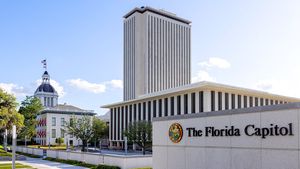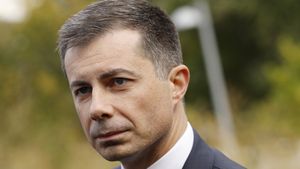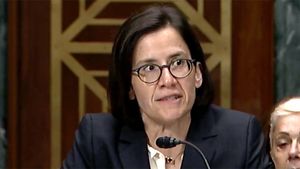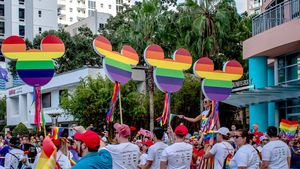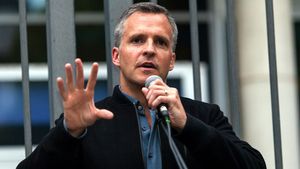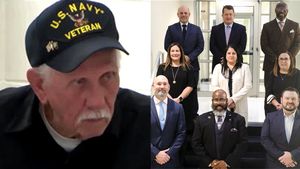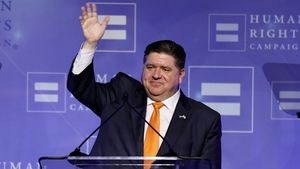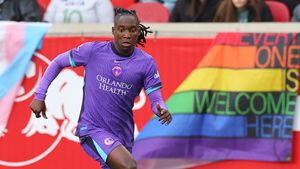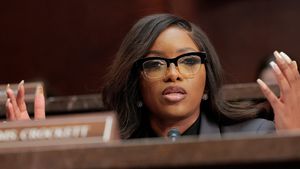CONTACTAbout UsCAREER OPPORTUNITIESADVERTISE WITH USPRIVACY POLICYPRIVACY PREFERENCESTERMS OF USELEGAL NOTICE
© 2025 Pride Publishing Inc.
All Rights reserved
All Rights reserved
Scroll To Top












By continuing to use our site, you agree to our Private Policy and Terms of Use.

Getting Comfy with The Boys in The Band
Getting Comfy with The Boys in the Band

Fifty years ago, Mart Crowley shook the theater world by shining a light on gay men for the first time ever. In his groundbreaking show, The Boys in the Band, Crowley revealed all the complexities and insecurities gay men experienced due to being ostracized from larger straight society.
01

The impact of The Boys in the Band remains salient to this day. OUT caught up with the actors of the show to see what it's like playing these iconic characters five decades later and to explore how gay culture has changed, and remained the same, in the past 50 years.
OUT: The Boys in the Band has been described as a "peephole aimed at gay men".

Talk about how that resonates in today's world vs. when the play debuted in 1968.
Michael Benjamin Washington: It has amazed me how the language of the play, which was once coded and particular to a shadowed and veiled community, is now the vocabulary of these men. The language has transcended a singular tribe and has entered mainstream consciousness and expression.
It is imperative that every community stop to pay homage to the elders that came before. The Boys in the Band, 50 years later, showcases the truth of how gay men existed, at least from the point of view of Mart Crowley, a brave playwright who sobered up and told the truth from his vantage point. I asked Mart, as he insists on being addressed, contrary to my upbringing, why he wrote a Black man into this all white tribe in 1967? His answer...BLEW MY MIND. I can't/won't/will never share the story, except for with Joe Mantello, but I have a new and profound respect for this playwright and his bravery in including more than just the white gaze into his storytelling. I'm very lucky to be alive in 2018 and am honored to tell the stories of all my elders.
OUT: How do you see it, Tuc?

Tuc Watkins: Actually, The Boys in the Band can be credited with punching that peephole in the wall through which audiences witnessed for the first time the lives of gay men authentically and unapologetically presented on stage. Since that time, more works like Torch Song Trilogy, The Normal Heart, and Angels in America have afforded that peephole to widen to more of a landscape portrait of who we individually and collectively are.
OUT: And your thoughts, Zach?

Zachary Quinto: So much about the play is a reflection of where things stood for the LGBTQ community 50 years ago. To consider how far we've come since - in terms of social and political integration - is inspiring. But at a time when we are besieged by an administration hell-bent on rolling back our progress, the play should also be considered a battle cry against ever returning to the kind of bigoted, intolerant and hateful thinking that pervaded mainstream society back then, and in fact threatens our wellbeing even today.
Matt Bomer: I'm continually impressed by the courage of Mart Crowley and the original cast in bringing this piece to the public pre-Stonewall in 1968. 1968 was an incredibly turbulent year in American history-- the assassination of Dr. King, Stonewall, anti-war protests, and the list goes on. Today, we can truly view The Boys in the Band as a period piece, and look at how damaging it was to this group of people who were shunned by society, told they had a psychological condition by their analysts, and couldn't even dance together in public. This underlying need to find a way to live was reaching a boiling point that resulted in Stonewall shortly after the play premiered.
Jim, Andrew? What do you think?

Jim Parsons: "Peephole aimed at gay men" sounds a little dirty to me, but maybe that's just where my mind is after working with eight other gay men. I would say there are aspects of this particular group of men featured in The Boys in the Band that will seem a little foreign and certainly a little heightened to a contemporary audience at first but, after a while, I think one begins to see so many similarities to today. While certain specific turns of phrase have certainly changed, can there be any doubt that when a group consisting entirely of gay men get together there is a particular pattern and patter to the conversation, at least at times? Again, speaking as someone currently working as a member of an all-gay cast of nine men, I assure you, I am living by example.
Andrew Rannells: When the show premiered in 1968, there was nothing like it. It was the first all gay play and a real look at how these men interacted privately. I think the amazing thing is that the topics discussed in the show are still things we are talking about today. My character, Larry, struggles with the idea of monogamy as a goal in his relationship. He argues that maybe that shouldn't be the standard for a successful relationship. That is certainly a conversation that people, gay and straight, are still having today.
OUT: How does this classic gay play resonate to a much more progressive generation 50 years after it debuted?

Tuc Watkins: I'm almost twice as old as the youngest person in the cast but I probably have twice as many fears about what it means to be gay. But this is a good thing. It means that we are standing on the shoulders of giants. Gay people who came before us, who paved path, so that The Boys in the Band could be produced 50 years later with perspective.
Matt Bomer: I hope we can all look back and see how far we've come, and from where we've come. And how courageous characters like Emory were in living their truth unapologetically under difficult circumstances. And, hopefully, have a really good time at the theater at the same time.
Jim Parsons: So much has undoubtedly changed in our world since this play was first produced. In that way, I think this play offers a chance to see what life was like for a gay man 50 years ago and a chance to feel grateful for the world we live in now and for the work done by the types of men depicted in this play to help move things forward in whatever ways they did. But I also feel like one would have to be willfully obtuse to not also see some level of commonality between then and now. Are things better for gay people in today's world? Undoubtedly. Are there still hurdles and obstacles for gay men and women all throughout our society? Again, undoubtedly. I so do not want to sound at all pessimistic or negative--THINGS ARE SO MUCH BETTER!--but not everything is hunky-dory for every gay person in every circumstance and taking a Pollyanna view of things won't keep the world progressing.
How do you feel about this, Brian?

Brian Hutchinson: It's a much different time in so many ways than it was in 1968. Before it was a window, the first into how gay men lived.
There was such curiosity, since for the most part, people couldn't be open about their sexuality. We are more progressive now, yes, we have come a long way. The gay community has been through Stonewall, and the devastation from AIDS, steps toward equality and the Supreme Court decision in favor of gay marriage. It's so easy today to forget what life was like 50 years ago.
My hope is that people will see this play understanding the history, that there was frustration and anger and rage boiling over as a result of society's unwillingness to give gay people the respect and dignity and rights and equality that they deserved. The drinking, the self-loathing and bitterness came out of this-- a world that was not a kind or comfortable or safe place.
So as much as generations since then may not want to be associated with these men, the sadness, the hiding out, it is an undeniable part of history. There still is constant active legislation against gay people in the US and around the world to varying degrees, so there is still a long way to go in terms of being gay as being a non-issue.
I think it's so important not to take these rights for granted, the ability to be open at work and at home, to be married, these things weren't even a consideration for most gay men and women in 1968. And the play still resonates in so many of its themes: being single vs. being in a couple, what fidelity means, aging, denial, how do we say 'I love you", and what that costs us.
And you, Robin?

Robin De Jesus: I think this play actually has the potential to resonate more now than it did 50 years ago. Fifty years ago this was basically the only gay story being told on a major platform and it had baggage for lots of gay men because the characters in it weren't "noble."
Today we have more gay content and everyone has a gay relative. The gay stories we see are more diverse, so The Boys in the Band no longer represents ALL gay culture. Because of that we can appreciate the nuances of this story more. This story isn't about men who hate themselves like many think. It's about men who want to love themselves and each other but society has told them they are less than. They are suffering from PTSD. They want to love healthily but don't know how.
I think we, as a modern day society, have a better understanding of what happens to cultures when they are ostracized. Today this play lends itself to even more empathy, sympathy and compassion.
OUT: Many of you represent one of the first generations of mainstream, openly gay actors.

How does that impact your work in the show and how does that impact what you want audiences to take away from the work?
Matt Bomer: I think it makes all of our investment in the piece more personal. But I'm an actor. My job is to try and help tell the story to the best of my abilities regardless of the subject matter--what the audience will take away from it is not in my control--although I'm really curious to see how they respond.
Andrew Rannells: These are incredibly well developed characters and it's such a wonderful opportunity as an actor. Particularly for an out actor, it's fantastic to have a complicated, layered, gay character to play. Often you get presented with the sassy friend role that rattles off one-liners. These are men with rich inner lives and fully fleshed out personalities. It's a real treat to get to dive into their world.
Jim, your thoughts?

Jim Parsons: I was very, very fortunate with the window of time in which I came to be known more widely as a working actor. That is not to say that in the early 2000s I still didn't feel nervous about the inevitable moment when I was "officially" labeled as gay in the press--especially in this day and age of the wildfire known as the internet -- but, at the same time, I always knew that I was going to be exactly who I was and, on some level, sensed that it wouldn't interfere with my ability to have a career. Again, that's exceedingly fortunate, when you consider the derailed careers or frustratingly secretive lives some actors in the past have dealt with.
Boys in the Band, specifically, in its original iteration 50 years ago, was a production that starred so many men who felt they had to hide their sexuality and so many who eventually died of AIDS --a disease that, let's be frank, was allowed to spread as widely as it did in large part due to homophobia and all the lack of action that led to.
The posters of us on the walls of the Booth Theater in New York do fill me with pride: nine gay, out actors with successful careers. There is undoubtedly a part of me that feels honored by this notion of saluting that original cast by exercising our ability to put this play on in such a different social climate than those men had the chance to. But I don't know if that's something that an audience can feel that will sustain them for a whole evening at the theater; I do feel strongly that our job now is to tell this story as honestly and entertainingly as possible, and then THAT will be the start of a conversation for an audience. If we don't entertain, no one will ultimately care that we were all out, gay men doing the play.
Charlie, Tuc, how does this affect you?

Charlie Carver: So many of the men, in front of and behind the scenes, are my creative heroes and role models. I'm able to live and work outwardly because of the strides they made for my generation. I think it's important that audiences realize how unprecedented it is to have this many out, successful men sharing the stage. Only a few years ago, I don't think this production would have been proposed for a Broadway run, especially because of a perceived liability of having a gay cast. That is clearly changing, just as so much has changed from the world of 1968 in The Boys in the Band. I think this production has an opportunity to look back and see how much has changed as 1968 and let historical vantage influence our work, but it's a special production too in what it's saying about the future - the future of representation and diversity in storytelling.
Tuc Watkins: As we walk around on this planet it's important that we make one another feel safe. We can do that by being open, vulnerable, and fearlessly honest with each other about who we are.
Latest Stories
Queens of Instagram! The most followed drag artists around the world
March 10 2025 4:09 AM
All the LGBTQ+ (and queerish) characters in the MCU so far
February 26 2025 5:31 PM
Murray Bartlett's 8 best gay roles in TV shows & movies
February 12 2025 2:33 PM
Unleash your Capital kink at MAL Weekend 2025
January 07 2025 3:17 PM
Get mile high with pride at Aspen Gay Ski Week 2025
December 23 2024 4:24 PM
Dushi Curaçao is your warm and colorful LGBTQ+ Caribbean paradise
December 16 2024 1:55 PM
27 LGBTQ+ reality dating shows & where to watch them
March 24 2025 11:32 AM
All the 'Drag Race' queens on OnlyFans (& what they're showing)
March 21 2025 10:57 AM
The future of rap is female and queer: 27 rappers slaying the game
March 05 2025 11:00 AM
Virgin Voyages' Resilient Lady redefines luxury at sea
February 25 2025 8:28 AM
Love is in the air! Unforgettable gay kissing scenes from TV & movies
February 12 2025 3:07 AM
Experience Thailand: The ultimate LGBTQ+ paradise
January 14 2025 10:14 AM
French Polynesia: A journey to LGBTQ+ heaven on Earth
January 07 2025 8:15 AM
48 steamy celebrity Calvin Klein ads the gays won't forget
March 17 2025 5:42 PM
HIV Is Not a Crime Day: Films about HIV & AIDS that you should watch
February 28 2025 1:23 AM
These queer icons show why they are the Real Nasty Pigs of New York
January 14 2025 4:28 PM
Get ready for pride on the slopes at Whistler Pride 2025
January 09 2025 3:10 PM
30 trans icons who have been featured in the Out100
December 31 2024 1:20 PM
Out and About with Billy Eichner
December 20 2024 3:28 PM























